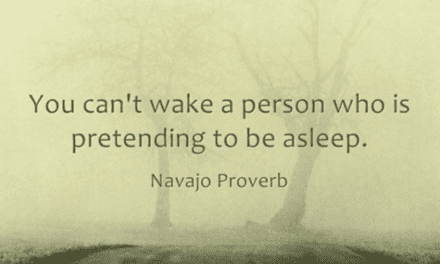“When I am sad, I eat
When I am frustrated with work, I eat
When I am disappointed with myself, I eat
When I am happy with something, I would still eat”
On days like this, I used to eat everything that I could get my hands. I would find myself making constant trips to the fridge for some emotional comfort. And this happened all day long, at work and would only amplify in the evening.
I justified my overeating by telling myself that after such a stressful day, I deserved something satisfying and a reward for the exhaustion I felt daily.
Munching on something always made me feel better, it was and instant relief and I would forget about all my problems and stress. But as soon as I would swallow the last bite of food, the soothing effect would disappear and I was filled with regret and guilt. But I was not satisfied and was still hungering for something more.
Although comforting eating provided me with a temporary emotional relief, the problem was that I was gaining weight. I hated weighing myself because the numbers kept on going up and I couldn’t comprehend why I continued this behavior when it was causing me so much distress.
Does this sound familiar to you?
For a long time, I existed in daily frustration I felt resentful the entire time. I didn’t know any other way to satisfy my constant hunger and had no idea that I was burning out.
So not knowing any other ways to soothe myself and my constant comfort eating resulted in huge weight gain and depression, that claimed 12 months of my previous life.
I call it my previous life because my life is so nourishing these days.
Most busy women think emotional eating is due to lack of self-control. However, in my extensive personal experience and experience with my dear clients when it comes to overeating and disordered eating, I know that is rarely the case.
They fall into the trap of eating to soothe themselves because emotional eating so seductive and comforting but most of all it’s so convenient.
One thing I know for sure is that these overeating issues are not about the food you consume or your lack of will power, it’s the way you use food to self-soothe.
When you eat to soothe yourself with food, it is generally what most of us call stress eating or emotional eating.
Experiencing Uncomfortable Feelings
The problem is that, many of us, have been taught very ineffective ways to self-soothe from a young age and to avoid things that feel uncomfortable. These ways are mainly about an escape (often with food) to avoid whatever is making you feel uncomfortable.
Many busy women have a very low tolerance to stress. When they find themselves in a stressful situation which makes them feel uncomfortable they tend to look for anything to get rid of that feeling. They look for ways to distract themselves and seek things that feel good.
In the long run, however, these are band-aid solutions that actually become a bigger problem.
This is a list of some habitual behaviors that women engage in when using food to soothe their feelings:
Eating puts you into a trancelike state or numbs you out
Chewing and munching on something feel good
You eat when you are not hungry, but you can’t stop yourself
You urge to eat starts up from feeling any emotion
Experiencing a great sense of relief while you are eating
Continuing to eat even when it feels like it will never be enough
Experiencing a great sense of relief while you are eating
Feeling an intense urge for something good tasting inside your mouth
Experiencing every emotion as hunger
Eating as a way to relax
Eating immediately after a stressful event or when you are nervous
Overeating at important or stressful events like family reunions and business meetings
Eating to stave off boredom
Feeling emotionally empty most of the time despite being physically satisfied
Seeking a particular kind of food like, chocolate, because it seems to change your mood
Eating leads to guilt when you do it for soothing rather than to stop physical hunger
So why do we self-soothe with food?
The absence of self-soothing techniques is why many diets don’t work in the long run.
They may guide you to change your nutrition. But what they don’t do is address the reason why you overeat and how to deal effectively with emotional eating.
Without these elements, managing your weight becomes nearly impossible and you don’t know how to care for yourself and the techniques you need to keep you calm in the presence of overwhelm without turning back to food.
Basically, if you eliminate eating as your main source of comfort, you have to find some helpful ways to calm and soothe both your body and your mind.
In this article, I would like to share with you 7 Easy Ways To Soothe Overeating Urges that I have successfully used myself and with my clients.
I hope that you find some of these alternatives just as satisfying!
What are soothing techniques?
Soothing techniques are mindfulness skills and practices to calm and relax your body and mind in times of overwhelm and stress. They are the actions that can you take every day to calm yourself down so that you can end your dependence on eating as a means of coping with difficult emotions.
So, let’s explore how you can start to nourish yourself with these satisfying, soothing alternatives
1. Take a Deep Breath!
Stress can cause you to breathe in a shallow manner, and this puts less oxygen in your bloodstream. You may feel anxious as a result.
The next time you feel uptight, try taking a minute to slow down and breathe deeply:
Take a moment to mentally scan your body for physical tension.
Are you holding your breath?
Then breathe in through your nose and out through your mouth
Try to inhale to the count of 6
Then slowly exhale to the count of 8
Repeat several times
2.Set your inner critic straight
“You are so hopeless! You are so fat! How could you eat that?”
These are some of the thoughts that circle around my mind daily. If people knew what I say to myself and the names I call myself when I overeat, they would be absolutely shocked. I wouldn’t speak like this to my worst enemy “
—Isabelle- a quote from one of my clients-
Your inner critic can be powerful and feel so real. This sort of self-shaming often leads to more eating, followed by shame and guilt. And often turns into a vicious cycle because you eat and then judge and then eat again to pacify your critical feelings.
Try being an observer of your thoughts, notice them but refuse to listen to them.
Give yourself a gentle little nudge each time you become aware that your inner critic is speaking up.
I find it’s helpful to practice having compassion for yourself, as it allows you the space to understand the soothing that emotional eating gives you.
Try to be kind, nonjudgmental, and empathetic toward yourself
This mind-set allows you to be honest with yourself
I find “loving-kindness meditation” to be a great tool in initiating self-compassion
This is a well-known form of meditation that dates back thousands of years. Doing even a few minutes of this meditation has been shown to strengthen your sense of connection with others and increase positive feelings (Hutcherson, Seppala, and Gross 2008).
You start by directing kind words and thoughts toward yourself. While you say these words, remember that you deserve this. kind of care.
Here is a link for you to explore this further
3.Let go
Letting go of, or not responding to, an urge to emotionally eat can take some practice.
Emotional eaters often struggle letting go of things including the guilt they feel.
Holding on to something that happened in the past and you can’t change can be a powerful trigger for overeating.
Letting go is an act in which you release your need to control the situation. You stop telling yourself how it should be and begin focusing on dealing with how things really are right now.
This technique allows you to open up to new insights
When you see issues as they really are, you can start finding new ways to address them
Catch and Release method
If a distressing thought is bothering you or your mind is stuck on wanting to eat, imagine yourself casting out a fishing line, catching that thought, reeling it in, and then releasing it right away.
4.Sleep on it
Getting a good night’s sleep not only helps your mood, it also helps stabilize your appetite making it less likely for you to engage in overeating.
The two hormones that control appetite are called leptin and ghrelin
When you don’t sleep enough, these hormones become unbalanced.
Sleep-deprived women tend to have low amounts of leptin and high amounts of ghrelin
This leads to an increase in appetite
Here are some tips for getting a better sleep:
1. Mindfully accept the need for sleep, even if it doesn’t fit well into your plans.
Give yourself permission to sleep more
Sleep actually regenerates your body and will make you feel refreshed and more productive
If you have the urge to eat, try to take a quick catnap to recharge your batteries
2.Check in with your body.
Allow yourself to rest your mind for a moment
Breathe deeply
Then ask yourself these questions:
Am I low in energy?
Where do I feel my hunger – in my stomach or my head?
If you have trouble sleeping, try chamomile tea, which is helpful to calm your nervous system.
5.Practice the art of reframing
“When you feel empty choose feeling that your glass is half full”
Practice reframing the situation so that you can see another perspective
Here is how to start:
1.Firstly notice your language
2.Write it down
Write down any negative words that you use to describe the situation (failure, stupid, worst ever, and so forth).
Choose new words. For example, change “failure” to “stumble.” A “relapse” can be made into a “reminder” or even a “chance to start again.”
3.Use this experience as a teaching moment
Ask yourself “What important lesson can I learn from this situation?”
6.Talk it out
Trying to deal with your emotions by yourself can be a lonely place and can leave you feeling frustrated and unheard.
There is a great idiom, “A problem shared is a problem halved” meaning that talking to someone can help take some of the pressure off.
Share your feelings:
Perhaps a friend or a family member, or counsellor can help you see your problem in a different light and offer another perspective
Talking with someone else can help clear your mind of confusion so that you can focus on problem solving
7. Take a mini-mind vacation
Stop and take a moment to close your eyes and imagine a place where you feel totally relaxed and at ease.
Notice all the smells and sounds of this place
What are you doing when you get there?
What can you touch to make the scene real?
How do you feel being there?
You could also try listening to a guided imagery meditation.
Here is one that I use “Self-Healing with Guided Imagery: How to Use the Power of Your Mind to Heal Your Body”
I hope that after reading this article you will understand how to differentiate emotion-driven hunger from healthy hunger and practise some of the soothing ways, instead of heading to the refrigerator, next time you feel the urge to snack.
Now I would love to hear about your experience ….
Do you fill up on your feelings to help you cope with life?
If you self-soothe with food as a coping mechanism and your first impulse is to open the refrigerator whenever you’re stressed, overwhelmed, lonely or exhausted, you may be stuck in an unhealthy cycle.
Ultimately finding out the reason why you are filling up on your feelings and applying some ways to get OUT of that cycle will help you start eating with a sense of FREEDOM, self-confidence and empowerment.
It’s never too late to make a positive change. You can find healthier ways to deal with your emotions, learn to eat mindfully, regain control of your weight, and finally, put a stop to emotional eating.
If you would like help & support with finding healthier ways to nourish yourself and accountability to make sure you follow through, than contact me for a free 15-min mini coaching session.
It’s free. And it might change your life.
I am ready to do this. Let’s go!
Irena Geller
Emotional Eating Coach
BSc (Biomed), Cert IV (PT), Wellness Coach (Level 3))
I coach 35+ women to put down their fork and pick up their life. If you want to end your struggles with excess weight, stress and self-belief, using your strengths and capabilities, book a a free 15-min mini-coaching session
with me and I’ll show you how to transform your life.
References
1. 50 Ways to Soothe Yourself Without Food
2.Stress and Eating Behaviours





